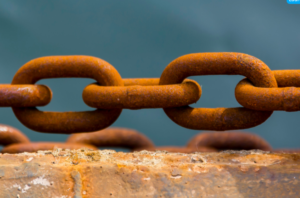
As is the case when choosing any mortgage, it is a good idea to scrutinise the terms and conditions of the particular fixed-rate product you choose, taking into consideration the interest rate, the length of the fixed period and whether there are early repayment charges payable during the initial period if you do need to sell or want to move on to a better deal.
In this article, we explain how fixed-rate mortgages work, the pros and cons, whether now is a good time to fix your mortgage rate and who should consider them. We also explain how to source the best fixed-rate mortgage deals and get expert mortgage advice*.
What is a fixed-rate mortgage?
As the name suggests, a fixed-rate mortgage offers borrowers a set period during which the monthly repayments are guaranteed to remain the same. This means that even if the Bank of England's (BoE) base rate changes, the interest payable on your mortgage loan will stay the same, unlike with a variable-rate mortgage product.
The fixed-rate period of the mortgage is typically 2, 5 or 10 years, although there are some new 15-year and even a 40-year deal available. It is also possible to secure a 1-year fixed-rate deal but, again, these are uncommon and typically only used for help-to-buy customers.
Generally speaking, the longer the mortgage fixed-rate period, the higher the interest rate although in recent times we have seen this reversed in some examples. Usually, this is because you pay a premium for the certainty that comes with knowing your rate is going to remain the same. However, this may change at times of high or rising interest rates when shorter-term fixed rates may become more attractive. It is also worth bearing in mind that fixed-rate mortgages, in general, are usually slightly more expensive than their variable-rate counterparts. Using our mortgage rate comparison tool, you can compare the best fixed-rate mortgage deals based on your specific needs. Below we illustrate some example fixed-rate mortgage deals over varying terms based on an 80% loan-to-value mortgage deal based on a property purchase price of £350,000 where the mortgage is arranged over 25 years on a repayment basis.
Fixed-rate mortgage deals over 2, 5 and 10 years
| 2-year fixed-rate mortgage | 5-year fixed-rate mortgage | 10-year fixed-rate mortgage | |
| Rate of interest | 4.20% | 4.06% | 4.44% |
| Monthly mortgage payment | £1,016 | £1,516 | £1,224 |
All mortgage rates are based on a repayment mortgage loan of £280,000 to buy a property valued at £350,000 (80% loan-to-value) arranged over 25 years and are correct as of 10 January 2025
Instant free mortgage advice
Our partner Habito is a leading online mortgage broker and will recommend the best mortgage for you
- Habito checks over 20,000 mortgages from 90 mortgage lenders
- 5-star rating on Trustpilot from over 5,000 customer reviews
- Can register online
Who is a fixed-rate mortgage good for?
- Borrowers who don't want to take the risk that their monthly repayments could go up, will be protected from this during the fixed-rate period
- People who like to be able to closely budget their monthly outgoings and, therefore, like to know exactly what their monthly mortgage repayment is going to be
- Those who believe interest rates are likely to rise during the fixed-rate period and wish to secure the rate they are paying for a period of time
Is now a good time to fix your mortgage?
As we are in a period of uncertainty, it may help some people understand what their mortgage will cost them when working out their monthly outgoings. The Bank of England increased the base rate of interest on fourteen consecutive occasions between December 2021 and August 2023 taking it from 0.10% to 5.25%, where it remained for seven consecutive meetings. In August 2024, it voted to cut rates by 0.25%, from 5.25% to 5.00%, the first rate cut since March 2020 and it has since been cut again by the same amount so that the base rate now stands at 4.75%. Analysts now believe that the BoE base rate may take some time to fall further and it may take until 2027 before it gets close to 4%.
Overall, there isn't complete consensus on what is going to happen to interest rates and, with that in mind, it may be more sensible to base your decision on the product that best suits your approach to managing your finances and the one that fits in with your own feelings about what is likely to happen in the wider economy. You may want to read our article 'When will interest rates rise (or in fact be cut)?' for the latest interest-rate predictions. The article is regularly updated and includes the indicators to watch that will determine when interest rates go up or down.
Can you get a short-term fixed rate mortgage?
Fixed-rate mortgages with a deal period that is less than 2 years are very rare but you may find a 1-year fixed-rate mortgage deal in certain circumstances. You will find more information about short-term mortgages in our article, "Can you get a 1-year fixed mortgage and what are the alternatives?".
What are the benefits of a 2-year or 5-year fixed-rate mortgage?
A shorter-term fixed-rate mortgage enables borrowers to easily budget for their monthly mortgage payments during the initial fixed period, safe in the knowledge they are protected from any unexpected interest rate rises during that time. This can be particularly attractive at a time when rates are low as it means you can secure a lower payment for a set amount of time. However, it may also be attractive if you wish to fix the best current rates with a view to being able to review them after a short period when you think rates may reduce.
The specific benefit of a shorter fixed-rate deal of up to 5 years is that you then have greater flexibility to be able to move to a better deal when the fixed term ends, without being tied into an extended deal and being exposed to a potential early repayment charge if you do decide to change. If the bank base rate does fall, you will be able to benefit from that sooner than if you are in a longer-term product too.
What are the benefits of a 10-year, 15-year or 40-year fixed-rate mortgage?
At the other end of the spectrum, longer-term fixed-rate mortgages are well-suited to those who want complete clarity on what their monthly repayments will be on their mortgage, without having the inconvenience of having to seek out a new deal at the end of a shorter-term fixed-rate mortgage period.
In an environment where interest rates have been at historic lows for an extended period, it can be wise to think about the future as rates do not stay low forever. Even as we have come through a period of increasing interest rates that have only recently started to fall slowly, some people will be willing to sacrifice flexibility for security by committing to longer-term products.
For more on longer-term mortgages, read our article "Which are the best long-term fixed rate mortgages - and should you get one?".
What happens if you want to move house and have a fixed-rate mortgage?
A factor to consider before choosing a fixed-rate mortgage of any duration is how easy it would be to "port" the mortgage if you move to a different property. Would you be able to transfer the existing mortgage to the new property without facing a penalty or having to go through an arduous application process? Although you may be confident you will stay in your home for the duration of the fixed-rate period, a change of jobs, redundancy or a relationship break up, for example, could lead to an unexpected change in circumstances.
Can you pay off a fixed-rate mortgage early?
While it should be possible to change to another deal, pay off the balance early or make a regular or one-off overpayment, there may well be an early repayment charge to take into consideration. You will need to weigh up the benefit of changing to a different deal or making an overpayment against the potential financial penalty for doing so. You will find more information about when it may be a good idea to pay the early repayment charge in our article, "When is it worth paying an early repayment charge to remortgage early?".
What happens when your fixed-rate mortgage comes to an end?
When you come to the end of the initial fixed-rate period, your mortgage will revert to the lender's standard variable rate (SVR). This will likely be much less competitive than the fixed rate you previously paid. With this in mind, it may be worthwhile to use a mortgage broker to help you find another deal to move to when your current fixed-rate deal comes to an end.
To avoid moving on to the SVR at all, it is sensible to consider your options a little while in advance of your deal ending to allow plenty of time to line up a new mortgage product.
What are the advantages of a fixed-rate mortgage?
- You are protected from any rises in interest rates during your fixed period
- You are able to budget for your monthly outgoings more effectively
- You are protected from increases in your lender's standard variable rate during the fixed-term
What are the disadvantages of a fixed-rate mortgage?
- Fixed-rate mortgages are often more expensive than variable-rate or tracker mortgages
- You won't be able to benefit if interest rates fall during your fixed period
- It can be more difficult to overpay on a fixed-rate mortgage without being charged for doing so, limiting the potential to pay off your mortgage sooner
- You may be hit with an early repayment charge if you want to move to another deal or pay off the balance during the fixed-rate period
What are the alternatives to a fixed-rate mortgage?
Alternatives to fixed-rate mortgages offer an interest rate that may change during the term of your mortgage deal and these can be arranged in the form of tracker rate mortgages or a standard variable rate mortgage. If you're not keen on fixing your mortgage interest rate, this may be because you wish to take advantage of falling interest rates if this materialises. Variable rate mortgages mean that your interest rate is not fixed but may be subject to upper and lower limits on what the interest rate may change to, allowing you to benefit from a fall in interest rates. You can read about these types of mortgages in our article, "What is a variable rate mortgage and is it a good idea?".
How can I get the best fixed-rate mortgage deal?
With more fixed mortgages available than any other type of mortgage in the UK, it can be difficult to find the best deal for you as a first-time buyer, someone who is remortgaging or as a buy-to-let investor. It is, therefore, beneficial to use the services of an independent, whole-of-market mortgage broker, who can help you find the best fixed-rate deal for your needs. The UK mortgage market is very competitive and we would recommend speaking to a mortgage broker. If you don't already have a mortgage broker then you may want to consider Habito*, an online mortgage broker who have access to over 90 lenders. For more information, check out our article Habito Review: The best online mortgage broker for you?.
If a link has an * beside it this means that it is an affiliated link. If you go via the link, Money to the Masses may receive a small fee which helps keep Money to the Masses free to use. The following link can be used if you do not wish to help Money to the Masses or take advantage of any exclusive offers - Habito






